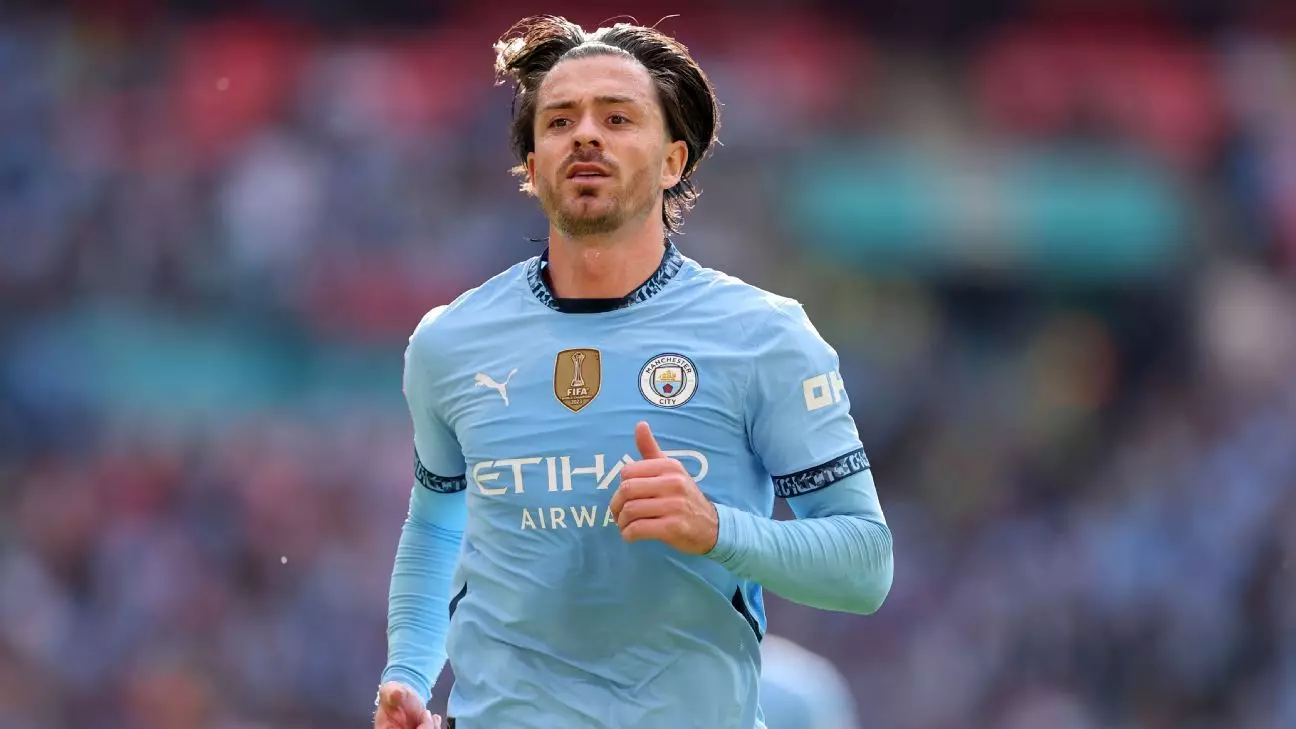Jack Grealish’s recent return to Manchester City’s training ground underscores a complex narrative of resilience amid frustration. Once heralded as a key figure, Grealish now finds himself navigating a bleak landscape of limited opportunities and uncertain future. His omission from Pep Guardiola’s squad for the FIFA Club World Cup, coupled with the club’s clear indication that he is surplus to requirements, signals a significant turning point in his City tenure. Despite his long-standing affiliation with the club, Grealish’s presence on the fringes highlights a stark reality: talent alone is insufficient without consistent game time and tactical fit.
What stands out is the contrast between Grealish’s high-profile signing and his current marginalization. Signing from Aston Villa as a marquee acquisition, the expectations were for him to become a central figure, yet recent performances and team dynamics have stifled that potential. Spending the summer on an individual training regime further emphasizes the player’s dedication to maintaining his fitness, even when opportunities are scarce. However, this solitude also accentuates his vulnerability—his desire to succeed is met with organizational hurdles and tactical shifts that diminish his influence on matchday.
The Transfer Dilemma and Player’s Aspirations
Sources suggest that clubs like Everton and West Ham are eyeing Grealish—a testament to his talent and the demand for his creative flair. Manchester City, however, appears more inclined towards securing a permanent transfer rather than isolating him through loan arrangements, even as the transfer window closes. This stance indicates City’s cautious approach, possibly aiming to avoid a temporary fix that could disrupt the team’s chemistry. Yet, Grealish’s personal ambitions are unmistakable: he yearns for regular minutes, especially with the World Cup looming on the horizon.
His contract, which extends for two more years at Manchester City, presents a strategic conundrum for both parties. City’s willingness to entertain loan proposals suggests an openness to parting ways, but the ultimate goal seems to be a permanent exit—allowing Grealish to reinvigorate his career elsewhere. His limited starts (just one Premier League appearance since January) underscore how distant he is from Guardiola’s plans. Such sidelining can undermine not only a player’s confidence but also their motivation, yet Grealish’s resilience hints at a steadfast desire to prove his worth.
Guardiola’s Perspective and the Future Outlook
Pep Guardiola’s comments provide some clarity: Grealish’s exclusion isn’t rooted in disciplinary issues but appears strategic. The manager’s acknowledgment that opportunities might still arise signifies an open-ended future, though it’s clear that time is not on Grealish’s side given the approaching transfer deadline. Within this context, the player’s future hangs in the balance—should he remain at City beyond the deadline, a renewed chance might present itself, albeit without assurances.
Grealish’s situation poses a broader question about player development, strategic planning, and the importance of confidence at the elite level. Despite setbacks, his willingness to rejoin training signals a readiness to fight for his place, but the harsh realities of top-tier football often favor consistency and tactical fit over potential. His experience serves as a reminder that talent alone isn’t enough; timing, management, and mental toughness are critical. As he seeks a new chapter, Grealish’s journey exemplifies the grit required to turn adversity into a comeback story.

